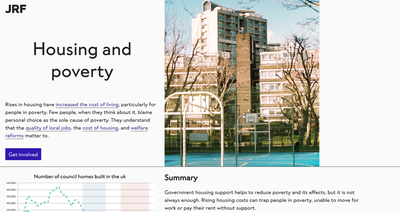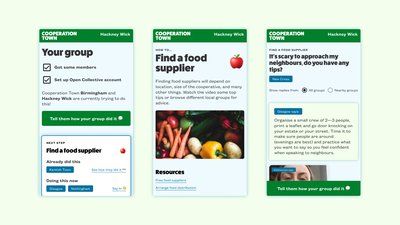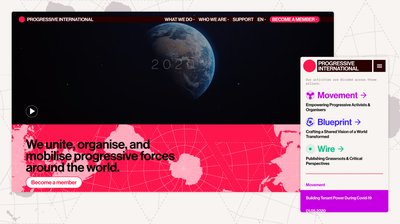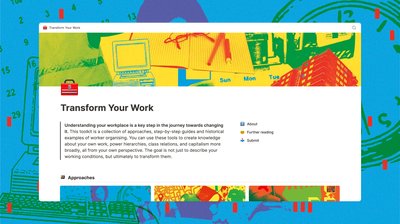Prototyping for social change
Our combination of expertise means that we can do more than just research — we can build rapid prototypes that will enable you to quickly test out your ideas in the real world. Working in this way will ensure you don't waste resources on solutions that that aren't effective or appropriate. This includes the possibility that sometimes the best answer to "do we need technology here" is "no, we don't".
Through prototyping, we look to build user experiences that work convincingly enough to create confidence in our ideas, but are lightweight enough that we don’t waste any time or energy on temporary solutions.
In this kind of work, we bias towards using off-the-shelf frameworks, tools, templates and glue code. The most valuable thing is what we can learn together, over and above “perfect solutions”.
The goal of rapid prototyping is to try ideas out and learn as they come up against reality, with an emphasis on getting something people can really use as quickly as possible. As part of this process we assess user desirability and organisational viability as well as usability and technical feasibility. This includes thinking through end-user interactions and the technical solutions that facilitate these.
As part of this work, we reflect upon our findings, outline a recommended approach, and establish a plan for next steps.
I brought in Common Knowledge to prototype new formats for a future JRF website. Their work focused on both online publishing and community organising. It's a tricky brief: how do you make an organisation come across as both a credible source of policy information and a welcoming online home for community activists? Especially when it needs to pass the apolitical sniff test. I'd specifically asked Common Knowledge to prototype in code and work intelligently with data: too many agencies don't. They work with a clear view of building beautiful products that suit the needs of a range of users. I was impressed by their thoughtful approach to the problem, their obvious domain expertise, and how well they engaged with stakeholders from across the organisation.
Ella Fitzsimmons, Head of Digital Transformation and Service Design (interim), Joseph Rowntree Foundation
Research and discovery
We often do standalone Discovery phases, where we explore a problem through a mix of interviews, technical research, content auditing, surveying and lightweight prototyping. This helps us build a deep, nuanced understanding of your organisational needs.
The outcome of this work is a clearly defined scope and project plan, based on what we’ve learned about your requirements and constraints, organisational and political context, and what the users of your technology need.
In 2020, we set out to launch a new International — the first such attempt in decades. We commissioned Common Knowledge to design our visual identity and website. With their guidance, we quickly learned that these processes are inseparable from the design of the organisation itself. Throughout our time working together, Common Knowledge helped us hone our vision, sharpen our thinking, and design an institution nimble enough to iterate in structure and strategy as we entered a largely uncharted territory in an era characterised by a deep mismatch between the scale of our crises and the scale of our activism.
Paweł Wargan, Coordinator of the Secretariat, Progressive International
Turning research into action
Take your academic research and transform it into a useful tool for activists, organisers, communities and other researchers.
We worked with Autonomy to adapt their research into worker inquiries into a practical resource base. Transform Your Work helps people understand their working conditions and collectively organise to change them.
Technical auditing
In organisations of any size, digital software can easily become unmanagable if left unmaintained. We can review your current technical set-up and provide advice on how to improve or overhaul it.
We gave 350.org advice on how to make the best of their complex WordPress based digital estate. We recommended that they embrace WordPress Gutenberg, automation and building tools that would help their campaigners self serve their digital needs.




